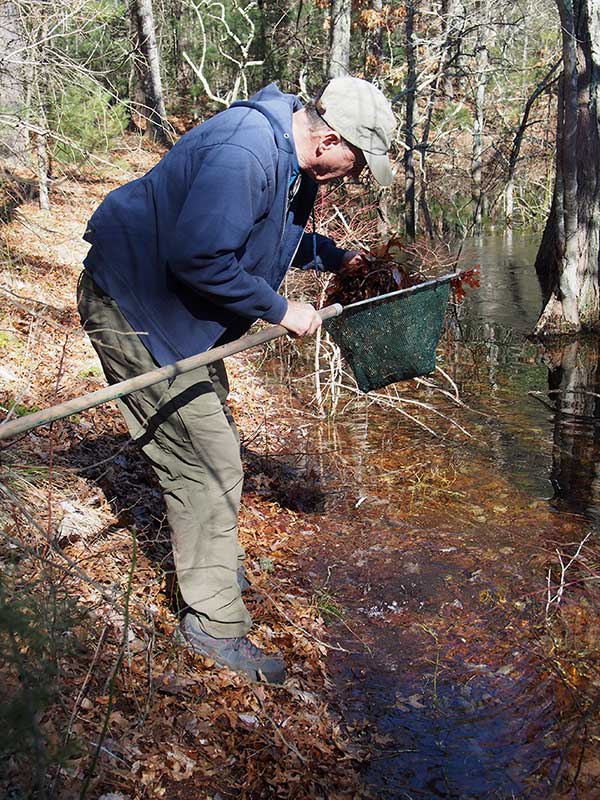
At a ceremony on Friday, March 29, 2019, Rhode Islander Christopher Raithel was recognized for outstanding achievements in environmental scholarship and natural resource management by the Rhode Island Natural History Survey. Mr. Raithel received the Rhode Island Distinguished Naturalist Award from the Natural History Survey at an evening event at the Quonset O Club in North Kingstown.
Chris Raithel retired in 2018 after nearly forty years as a rare species biologist at the Rhode Island Department of Environmental Management. At the DEM, Raithel assessed animal species across Rhode Island and when a species was demonstrably in decline or in immediate danger of extirpation developed and prioritized conservation activities and policies.
Mr. Raithel received bachelor’s and master’s degrees in environmental science from the University of Rhode Island where he studied environmental factors that affect frogs and salamanders. Upon starting at DEM, he helped create the first citizen science project in Rhode Island aimed at amphibians. He recruited and trained volunteers across the state to report localities, breeding success, and other data.
Throughout his career Raithel worked closely with professional herpetologists and curators of systematic collections, particularly the American Museum of Natural History. This enabled him access to historic data and the latest data-gathering and analytical techniques, as well as to find the right places to permanently archive his own data and voucher specimens.
Although he is perhaps most widely known for his work on reptiles and amphibians, Raithel is also known for his expertise in freshwater mussels and he published a paper on the freshwater mussels of Rhode Island in 2006. He also became involved in beetle conservation, inventorying tiger beetles around the state and for years inventorying and monitoring the population of federally endangered American burying beetles on Block Island. Raithel was instrumental in changing the way we manage species at risk of becoming endangered. Taking a more regionally focused perspective, he advocated for increased habitat protection and management attention in strongholds where declining species are still relatively secure rather than dissipating all conservation resources in places where a species’ decline is already inevitable. Raithel participates in various bird monitoring programs and is also an accomplished field botanist, assisting the New England Wild Flower Society’s Plant Conservation Task Force to conserve rare plants in Rhode Island.
